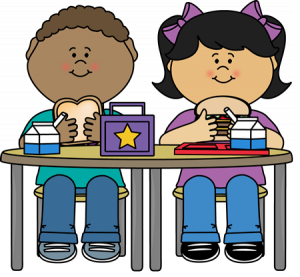There are things I’ve observed as a teacher about how to take advantage of learning opportunities the connect what students learn at home with what they learn at school.
This post was prompted by an article in the Parents magazine in September 2018.
Here are some ideas to incorporate learning opportunities in everyday interactions with your child and other things I’ve noticed as a teacher.
Math: Have them count and do math with things around you. Math is everywhere, sometimes you just have to look for the opportunities.
Don’t bash math. Research shows that a positive mental attitude helped the hippocampus in the brain function, which is important for memory!
Social Skills: Practice table manners at home to give them confidence at the lunch table.
Role play possible conflicts and discuss different options on how to handle situations with peers.
Encourage your child to tell the teacher if they don’t feel well or something is bothering them. Even if they don’t feel comfortable telling the teacher, sticky notes are more than welcome in the classroom.
The developmental stage for second graders grows in them a natural curiosity. 1o minutes a day of dedicated, intentional conversation may surprise you and become your child’s favorite part of the day.
It’s ok to fail. Some students put themselves under (or are put under) enormous pressure to not make ANY mistakes. You don’t want a meltdown for every mistake. Instead, try to see mistakes in a positive light because they provide opportunities to learn! Check out our counselor, Cindy Smith’s column on fail-fragile children in Chelseacentral.com!
As your child advances into older grades, give them more leadership tasks at home, how to safely help in the kitchen or do laundry. Give them opportunities to be independent, don’t just tell them how to do homework, but let their ideas shine through.
Organization: Label everything for your child! They need to practice tying their shoes and be able to tie their own by the end of second grade. Have them keep a planner and write down or keep track of their own responsibilities.
Handwriting: Backward letters should be gone by the end of 2nd grade.
It is a law to teach cursive in 2nd and 3rd grade in Alabama. Oftentimes students who struggle to write in print may develop a knack for cursive. Encourage them to practice at home, and it’s a great challenge for students who love to write.
Kids’ imaginations are really coming online. Encourage them to write, tell and draw stories.
Lunchtime: Be in tune with your child’s lunch habits. I often notice that students don’t eat their sandwiches or main meal, but pile up on the Doritos and Rice Krispie treats. The lunch bill adds up, and the child doesn’t end up eating many nutritious things. Talk to the teacher to keep an eye out. Sometimes students don’t finish lunch because they’re busy talking or playing with their friends. 
Reading: Don’t spell everything for your child. Practice sounding it out and ask them how they think it would be spelled. Read road signs together.
Encourage critical thinking. Ask your child to prove from the text why they think the main character is kind, or what they believe the main idea of the story is.
Read every night before bed, even if they read a couple pages out loud to you while you juggle the sibling. There are some great picture books with more challenging vocabulary words.
Look beyond fiction. Anything with graphs, diagrams, and words is some great non-fiction stuff.
Speech: If you notice a speech irregularity, even if it’s nothing, ask the teacher. Most speech issues should be resolved by the end of 2nd grade. Usually, I will refer them to our speech therapist who will screen them and let you know the results.
Science and Social Studies: I take a “Ms. Frizzle” approach to these subject areas. Do science experiments with your child, or explain the scientific phenomenon behind things you observe (how flowers produce oxygen, why leaves turn brown in fall, chemical reactions, etc.), and take them to museums and historic sites in the area near you. Did you know we have a history museum in Chelsea? They have events for families too! https://www.facebook.com/ChelseaAlHistoricalSociety/
I like to tell stories of family history too! I tell all about my grandmother’s experiences growing up in the Depression, and my grandfather being in the Navy in World War II.

Be First to Comment